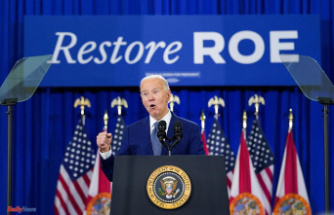Schwerin (dpa/mv) - The ongoing debate about her role in supporting the Russian-German gas pipeline Nord Stream 2 has significantly damaged the reputation of Mecklenburg-Western Pomerania's Prime Minister Manuela Schwesig (SPD) among voters. According to an opinion poll published by NDR on Thursday, only 49 percent of those entitled to vote are currently satisfied with the work of the head of government in Schwerin.
Immediately before the state elections in September 2021, which Schwesig's SPD won overwhelmingly, the proportion was significantly higher at 71 percent. Regardless of the loss of popularity, Schwesig remains unchallenged as head of government: according to a survey, 72 percent of people in Mecklenburg-Western Pomerania currently see no reason to resign from office.
Since the beginning of the Russian war of aggression against Ukraine, Schwesig has been under massive pressure because of her long-standing support for Russian interests. Above all, close contacts with the Gazprom subsidiary Nord Stream 2 and a lack of transparency at the climate protection foundation, which was founded by the country in order to be able to complete the gas pipeline while circumventing US sanctions, are criticized. According to the survey, for the clear majority of the population, Nord Stream 2 was not a mistake from the start. The verdict on the climate protection foundation is more critical.
Schwesig's crumbling reputation also has an impact on the overall assessment of government work. Half a year in office, the coalition of SPD and Left Party is only satisfied with 47 percent of those entitled to vote. With 49 percent, the critical voices on the government work of the Red-Red prevail. The left-wing alliance thus fares worse than the previously governing coalition of SPD and CDU.
When asked about party preferences, the SPD lost a noticeable amount of support, but remained the strongest party in the north-east with 30 percent. In the state elections in September, she had reached 39.6 percent. Gains are recorded in the AfD and CDU survey, each of which comes to 19 percent. The Greens make a big jump from 6.3 to 11 percent - leaving the left (9 percent) behind. The FDP, like the Greens, only narrowly made it into the state parliament last autumn, slipped below the relevant 5 percent hurdle again with 4 percent.
For the survey, Infratest dimap interviewed 1,183 eligible voters of all age groups and genders nationwide on behalf of the NDR between June 1st and 4th. About two thirds were telephone interviews, one third online surveys. According to NDR, the election poll is considered representative.












